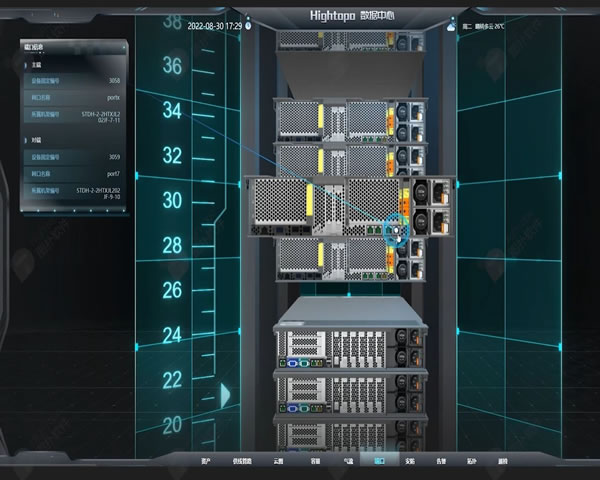The rapid development of the Internet is inseparable from the support of its underlying infrastructure, and root servers, as an important part of this infrastructure, play an indispensable role. The US root server is not only a core part of the Global Internet Domain Name System (DNS), but also provides key guarantees for network stability and security. This article will explore the main functions of the US root server and its importance in the Internet.
Basic definition of root server
The root server is the highest level of the domain name system (DNS) that manages the resolution of top-level domain names. The global root server network consists of multiple servers distributed in different locations, with the United States having the largest number of root servers. These servers store the root area information of the Internet domain name, allowing users to access the corresponding IP address through the domain name, thereby realizing website access.
Functions of US root servers
The main function of the US root server is to provide DNS resolution services. When the user enters a URL in the browser, the root server will first receive the request and return the information of the top-level domain server corresponding to the domain name. In this way, the root server ensures that Internet users can successfully find the website they need. In addition to basic parsing functions, the root server also has advanced features such as load balancing and failover to improve system stability and reliability.
The contribution of root servers to Internet stability
Root servers play a crucial role in ensuring Internet stability. Due to the distributed architecture of the root server, even if one server fails, other servers can continue to provide services, reducing the risk of a single point of failure. In addition, the root server can reduce network latency and improve the speed of users accessing websites through efficient processing of DNS requests, which is crucial to maintaining the overall fluency of the Internet.
Role of root server in network security
As cyber attacks grow, the role of root servers in cybersecurity becomes increasingly important. The root server is able to protect the security of the entire Internet by filtering malicious requests and preventing DNS attacks. In addition, the root server also supports DNSSEC (DNS security extension), adding a layer of security guarantee to the domain name resolution process, effectively preventing security threats such as domain name hijacking and cache poisoning.
The relationship between root server and global Internet
The US root server not only serves domestic users, but also plays a key role in the global Internet environment. With the interconnection of the global Internet, DNS requests from many countries and regions will eventually point to the root server in the United States. Therefore, the performance and reliability of US root servers directly affect the Internet experience of users around the world. Through continuous optimization and upgrading, the root server ensures the efficient operation of the global Internet.
Future development trends of root servers
Looking ahead, the development of root servers will move towards higher security and intelligence. With the rapid development of emerging technologies such as 5G and the Internet of Things, root servers need to cope with more complex network environments and traffic needs. In order to maintain the efficiency of the system, the root server will continue to innovate technologically, such as adopting new technologies such as distributed storage and edge computing to improve response speed and processing capabilities.
Summary and suggestions
American root servers play an indispensable role in the Internet infrastructure, and their functions and importance cannot be ignored. In order to maintain the stability and security of the Internet, all countries should strengthen cooperation with root servers and jointly maintain the healthy development of the global Internet. In the future, with the advancement of technology, the functions of the root server will continue to expand to provide better network services to users around the world.

- Latest articles
- reasons and solutions for thailand vps failure
- where to buy korean native ip? comparative analysis of multiple channels
- japanese vps usage tutorials and faqs
- best practices and common problems in setting up a server in singapore
- is the vietnam vps trial service experience trustworthy?
- understand the basic configuration and technical requirements of korean cloud servers
- analysis of the advantages of high-defense hard defense servers in the us market
- steps and precautions for purchasing cloud servers in vietnam
- an in-depth discussion on the stability and security of korean vps ip
- advantages and usage scenarios of alibaba cloud cambodia servers
- Popular tags
-
How to choose the right U.S. high defense server rental service
This article will guide you how to choose a suitable US high defense server rental service and provide purchase precautions and suggestions. -
How anchors use American servers to improve live broadcast quality and viewing experience
Discuss how anchors can use American servers to improve the quality and viewing experience of live broadcasts, and provide practical suggestions and technical support. -
The facts and misunderstandings about whether global servers are really concentrated in the United States
This article discusses the facts and misunderstandings that global servers are really focused on the United States, providing readers with in-depth insights and analysis.


